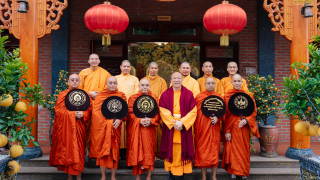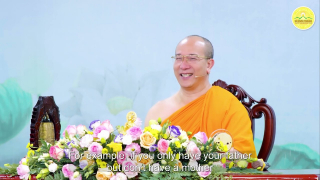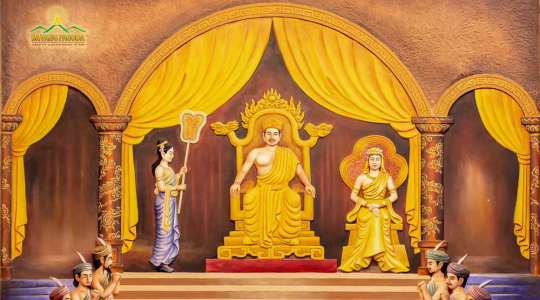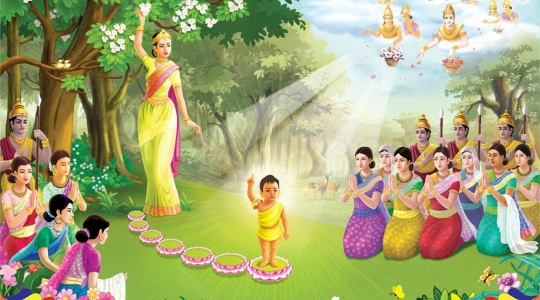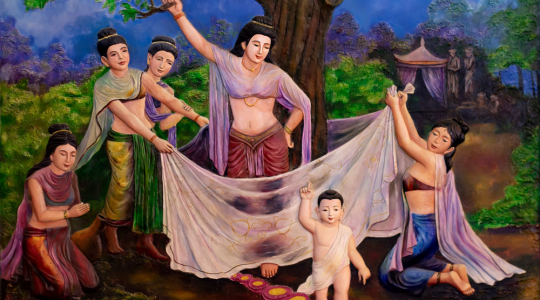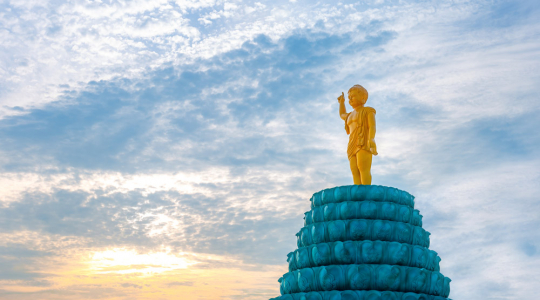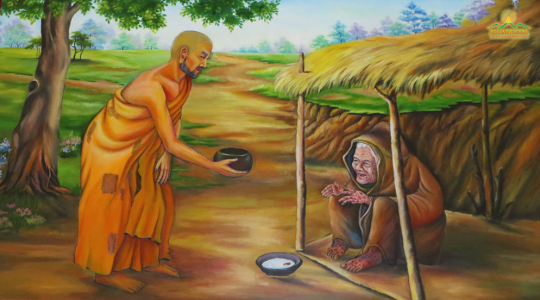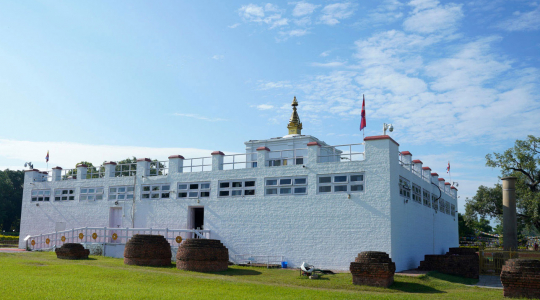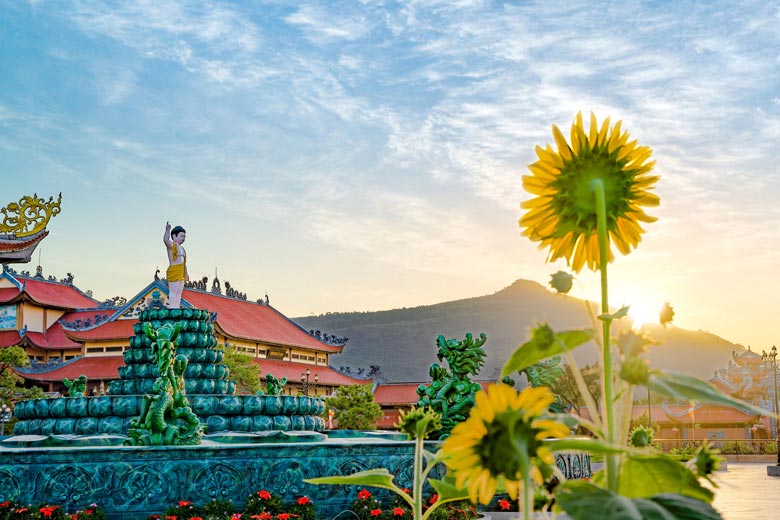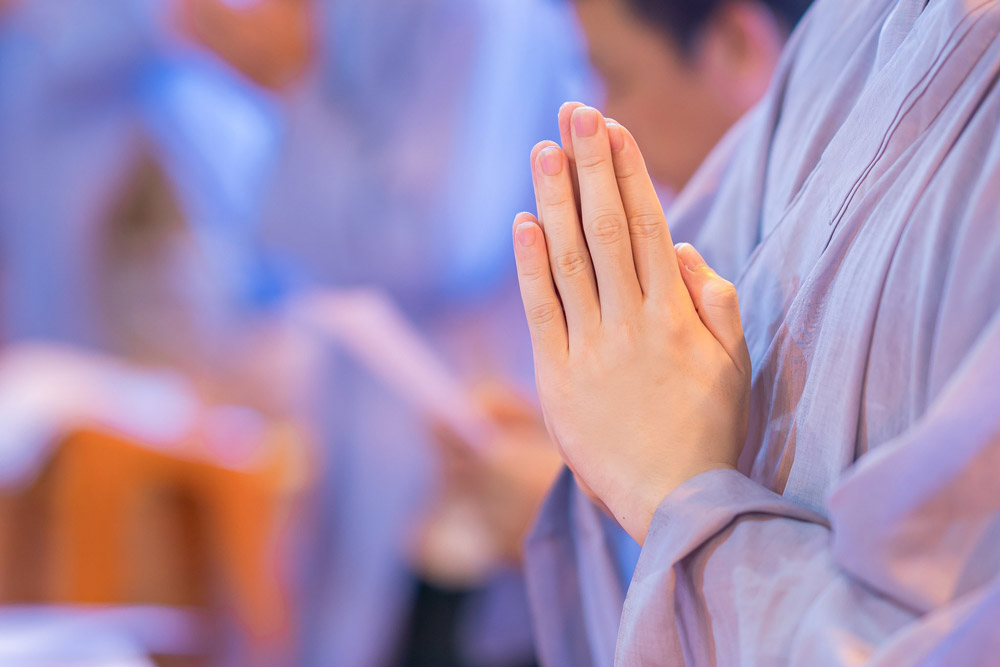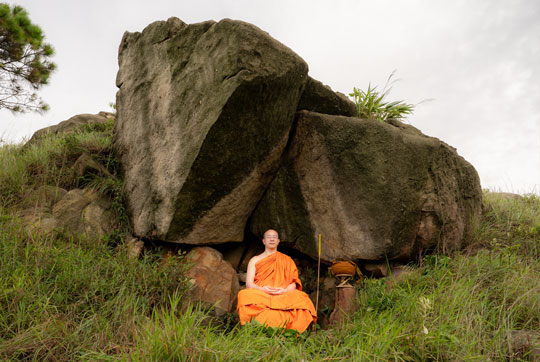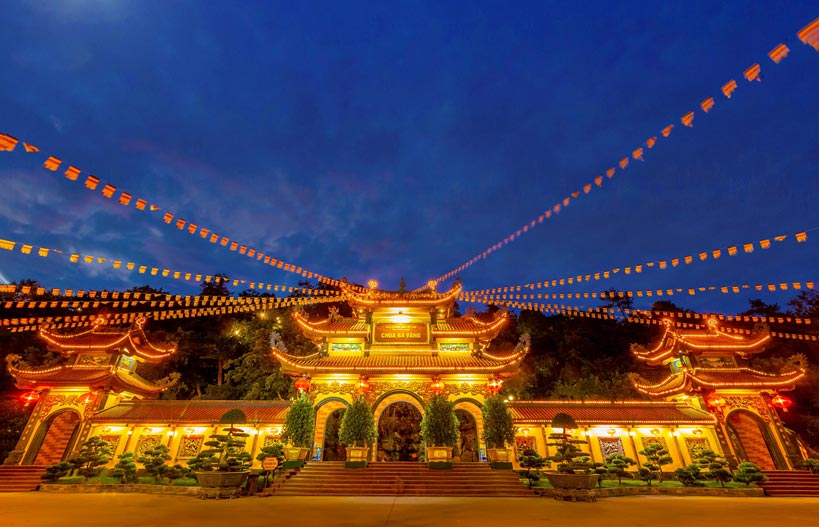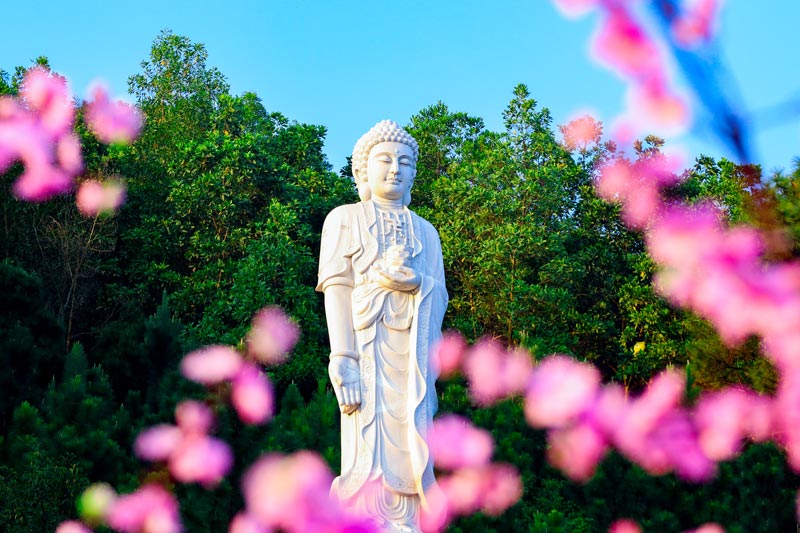The Buddha was not arrogant when he declared “Heaven above and heaven below, I alone am the Honoured One”?
Table of contents [Hide]
The Upali Sutra said at the birth of Prince Siddhartha (later known as Shakyamuni Buddha), he took seven steps, each of which was supported by a golden lotus. In his seventh step, he stopped and declared:
“Heaven above and heaven below
I alone am worthy of honor,
My endless cycle of rebirth
Has now come to an end.”
Many people reckon the quote “Between heaven above and earth beneath, only I am the Honored One” to be a token of the Buddha's arrogance which sharply contradicts the nature of Buddhism - selflessness and altruism because right upon his birth, he already regarded himself the most revered.
The following article aims to explain Prince Siddhartha's utterance and hopefully better your understanding of it.
What does it mean by “Heaven above and heaven below, I alone am worthy of honor”?
In this utterance, the Prince declared that he was the noblest one in all realms.
Explaining Prince Siddhartha's utterance
This utterance is true. Just as when introducing someone, we say: “This is the President, this is the deputy secretary, ” so the Buddha's loud declaration “Only I am the Honored One” exactly identified his title. In terms of virtues and merits, he is indeed the most supreme that no one can compare, even celestial beings, or Brahmas (devas of the Form Realms).
Accordingly, his declaration is absolutely reasonable. Moreover, the World-Honored One declared himself to inform all beings of his appearance - the firm refuge for them to return to.
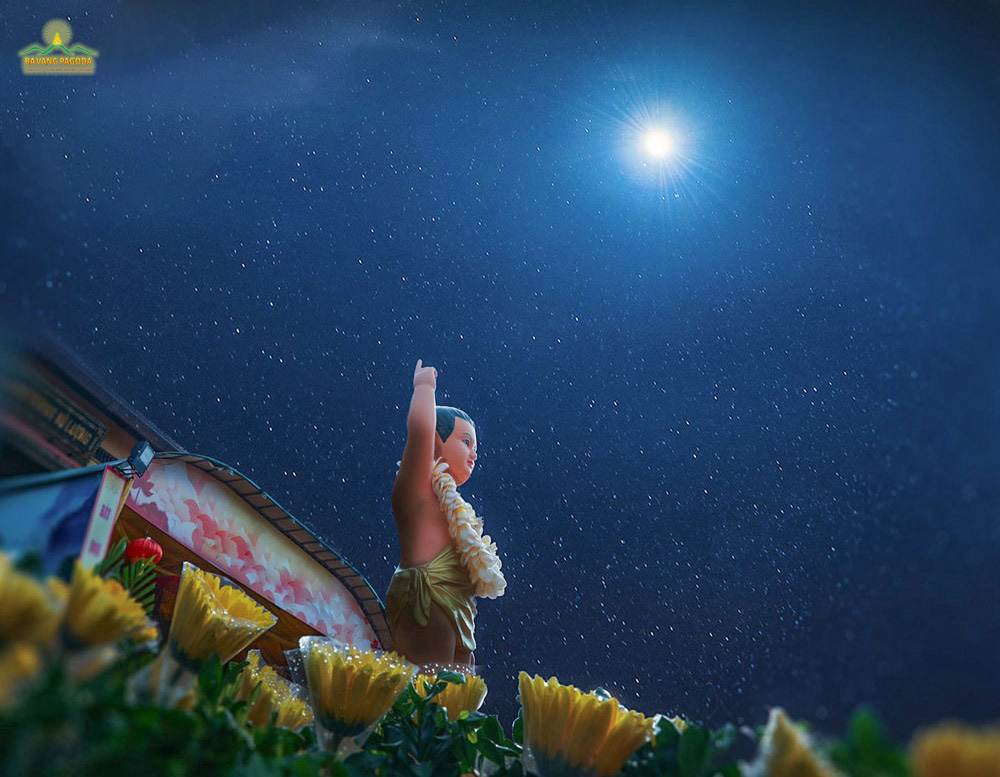
Prince Siddhartha, with one hand towards the sky and the other towards the earth, declared “Between heaven above and earth beneath, only I am the Honored One”
Is the Buddha humble?
Regarding humbleness, the Buddha is unparalleled. Having attained enlightenment after 49 days of meditation under the Bodhi tree, he used his holy sight to search throughout all realms to see if there was anyone else nobler and worthy of being his teacher for him to pay homage to.
Nevertheless, after searching, he found no one of greater virtue and wisdom than himself, whether in celestial, human, or devil realms. Hence, he decided to homage to the Dharma he attained - the Truth.
To a mediocre one, they might think the whole world revolves around them just because they have a bit of talent. However, Prince Siddhartha still searched for someone of greater virtue to pay homage to even after attaining perfect enlightenment. Such a noble action undoubtedly represented his unrivaled modesty.
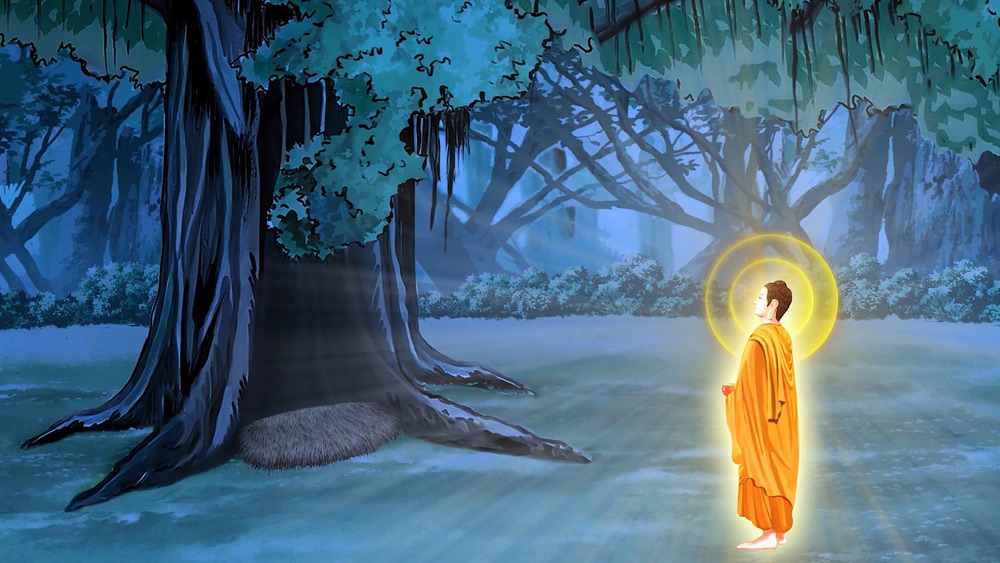
After attaining supreme enlightenment, the Buddha used his holy sight to search throughout all realms for any nobler one to pay homage to (source: Internet)
Therefore, “Heaven above and heaven below, I alone am worthy of honor” is a timeless and perfectly reasonable quote. Regarding all virtues, this is a declaration rather than a sign of arrogance.


